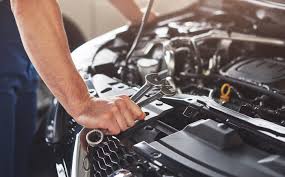
Car servicing is an essential aspect of vehicle ownership that ensures your car runs smoothly and efficiently. Regular maintenance not only prolongs the lifespan of your vehicle but also enhances safety on the road. In this comprehensive guide, we’ll delve into the importance of car servicing, what it entails, how often it should be done, and the benefits it offers.
Importance of Car Servicing
Regular car servicing is crucial for maintaining the overall health and performance of your vehicle. It involves inspecting various components, replacing worn-out parts, and addressing any issues before they escalate into major problems. Here’s why car servicing is so important:
Ensures Safety
Safety should always be a top priority when it comes to driving. Regular servicing helps identify and rectify potential safety issues such as worn brake pads, faulty steering components, or tires with inadequate tread depth. By addressing these issues promptly, you reduce the risk of accidents on the road.
Prevents Breakdowns
Imagine being stranded on the side of the road due to a mechanical failure that could have been prevented with regular servicing. Routine maintenance helps catch problems early on, preventing unexpected breakdowns and costly repairs down the line.
Improves Performance
A well-maintained car performs better on the road. Regular servicing includes tasks like oil changes, filter replacements, and tune-ups, all of which contribute to smoother operation, improved fuel efficiency, and overall better performance.
Maintains Resale Value
If you plan to sell or trade in your vehicle in the future, a comprehensive service history can significantly enhance its resale value. Prospective buyers are more likely to pay a premium for a well-maintained car with documented servicing records.
What Does Car Servicing Include?
Car servicing involves a range of tasks designed to keep your vehicle in optimal condition. While specific procedures may vary depending on the make and model of your car, typical servicing tasks include:
Oil and Filter Change
Regular oil changes are essential for lubricating the engine and preventing premature wear and tear. During a service, the oil filter is also replaced to ensure proper filtration and engine protection.
Fluid Checks and Top-Ups
Fluid levels such as coolant, brake fluid, power steering fluid, and windshield washer fluid are checked and topped up as needed. Proper fluid levels are crucial for various vehicle systems to function correctly.
Brake Inspection
Brakes are inspected for wear and tear, including brake pads, rotors, calipers, and brake lines. Worn brake components are replaced to maintain optimal braking performance and safety.
Tire Rotation and Inspection
Tires are rotated to ensure even wear and maximize their lifespan. Additionally, tire pressure and tread depth are checked, and any abnormalities or damage are addressed promptly.
Battery Testing
The battery is tested to ensure it holds a charge and functions properly. Corrosion on terminals is cleaned, and connections are tightened to prevent starting issues.
Engine Tune-Up
A tune-up involves inspecting and, if necessary, replacing spark plugs, ignition coils, and other components to ensure the engine runs smoothly and efficiently.
How Often Should You Service Your Car?
The frequency of car servicing depends on various factors, including the age of the vehicle, driving conditions, and manufacturer recommendations. As a general guideline:
- Regular Maintenance: Most cars benefit from a service every 6-12 months or every 10,000-15,000 kilometers, whichever comes first.
- Severe Driving Conditions: If you frequently drive in stop-and-go traffic, extreme temperatures, or dusty environments, more frequent servicing may be necessary.
Benefits of Regular Car Servicing
Regular car servicing offers a myriad of benefits that contribute to the longevity and reliability of your vehicle. Some key advantages include:
Cost Savings
While servicing may seem like an additional expense, it can actually save you money in the long run by preventing major repairs and extending the lifespan of your car.
Enhanced Reliability
A well-maintained car is less likely to leave you stranded on the side of the road due to unexpected breakdowns, providing peace of mind and reliability.
Improved Fuel Efficiency
Efficiently running components, such as a clean air filter and properly inflated tires, contribute to better fuel economy, saving you money at the pump.
Environmental Benefits
Maintaining your car in good condition reduces harmful emissions and minimizes its environmental impact, contributing to a cleaner and greener planet.
Conclusion
In conclusion, car servicing is a crucial aspect of vehicle ownership that should not be overlooked. By prioritizing regular maintenance, you can ensure the safety, performance, and longevity of your car while enjoying cost savings and peace of mind on the road. Remember to adhere to manufacturer recommendations and consult with a professional mechanic for personalized servicing advice tailored to your vehicle’s needs. Don’t wait until something goes wrong—schedule your next car service today and reap the benefits of a well-maintained vehicle.

